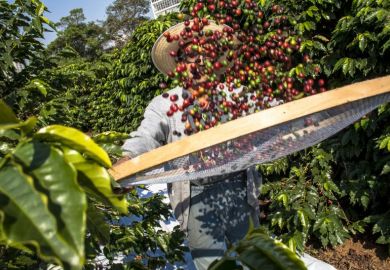There is “a revolution waiting to happen in education”, which the current crisis may help bring about, according to Roland Kupers.
After 23 years as a “salary man” at AT&T and Shell, Dr Kupers is now a consultant and a researcher at the University of Amsterdam. He has taught a course on complexity and public policy at both Singapore Management University and Arizona State University. His new book, A Climate Policy Revolution: What the Science of Complexity Reveals about Saving Our Planet (Harvard University Press), applies the lessons to that global challenge.
What is needed, the book argues, is “sweeping systemic change, not just tweaking an existing equilibrium”. For this, the crucial discipline is not economics but complexity science.
Instead of just exhorting people to eat less meat or drive less, the book concludes, we need to look for a “network tweak [that] could lead to the emergent system property of radically lower meat consumption” or “a measure that leads to less driving as an emergent property of the transport system”. Similar approaches could help us overcome our “addictions” to consumption and to coal. It might even be useful to legalise psychedelic drugs, which are less dangerous than tobacco and seem to “create a stronger affinity with the natural world”, the book suggests.
As of now, Dr Kupers told Times Higher Education, there are just three areas where “complexity science has [already] become a standard practice”: the study of traffic, urban warfare – and epidemics.
As a result, “the discussions being held today around the corona epidemic are like a public masterclass in complex systems”, he said. There was now an opportunity to build on this, integrate the social sciences and so “broaden the reductionist frame” that has dominated higher education for too long, he added.
In most disciplines, Dr Kupers said, “people are educated to be reductionist. And that’s great, except when you are dealing with complex interconnected systems. In most disciplines, there is no complexity curriculum either at bachelor’s or master’s level.”
He continued: “In economics, it’s particularly serious. The history of economic science in the 20th century is one of the most curious in human intellectual history. It’s a story of people taking very reductionist models in the late 19th century as a reasonable hypothesis, because they had nothing else and needed to start somewhere, but [around] the 1930s they got translated into policy. They weren’t nearly ready! They needed decades’ or even centuries’ more work. [Such models] became the basis for economic policy when they shouldn’t really have left the laboratory.”
At the Intergovernmental Panel on Climate Change, Dr Kupers went on, environmental scientists “have developed a real language of uncertainty, because the climate is a complex system that is very hard to model, but then they throw their models over the wall to the economists, who run it through macro-models and say ‘That will cost 0.5 per cent of GDP by 2050’ – when you can’t even forecast next’s year GDP!
“That has created a trap for policymakers, because the top-level narrative is that it’s expensive to deal with the climate, whereas the reality is that we have no idea, because our models are incapable of forecasting that with any precision. It could be a huge growth opportunity...If the economists had said ‘We’re not sure’, it would have been a very different discussion.”
Although the very idea of complexity science inevitably sounds complex, Dr Kupers suggested that “our intuitions are actually quite well tuned to it”, and that we have just been falsely educated to believe that “the public sphere is fit for reductionism...We’ve been led to believe that the public realm can be dealt with using reductionist means.”
If and when we emerge for the Covid-19 crisis, Dr Kupers hoped that a new understanding of complexity and contagion might also help us rebuild a better world, since “systems understanding and modelling is fairly generic”.
He continued: “The adoption of solar panels follows exactly the pattern of an epidemic. Having solar panels is contagious. If you put solar panels on your roof, it’s more likely your neighbour will. The degree of contagion and speed of the spread are different per city. It depends partly on the topology of the city but mainly on the urban fabric. In cities where there is a high level of trust, a good community spirit, it spreads faster. From a policy perspective, because this is an epidemic you want to encourage, the trick is finding super-spreaders.”
Register to continue
Why register?
- Registration is free and only takes a moment
- Once registered, you can read 3 articles a month
- Sign up for our newsletter
Subscribe
Or subscribe for unlimited access to:
- Unlimited access to news, views, insights & reviews
- Digital editions
- Digital access to THE’s university and college rankings analysis
Already registered or a current subscriber?










